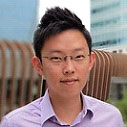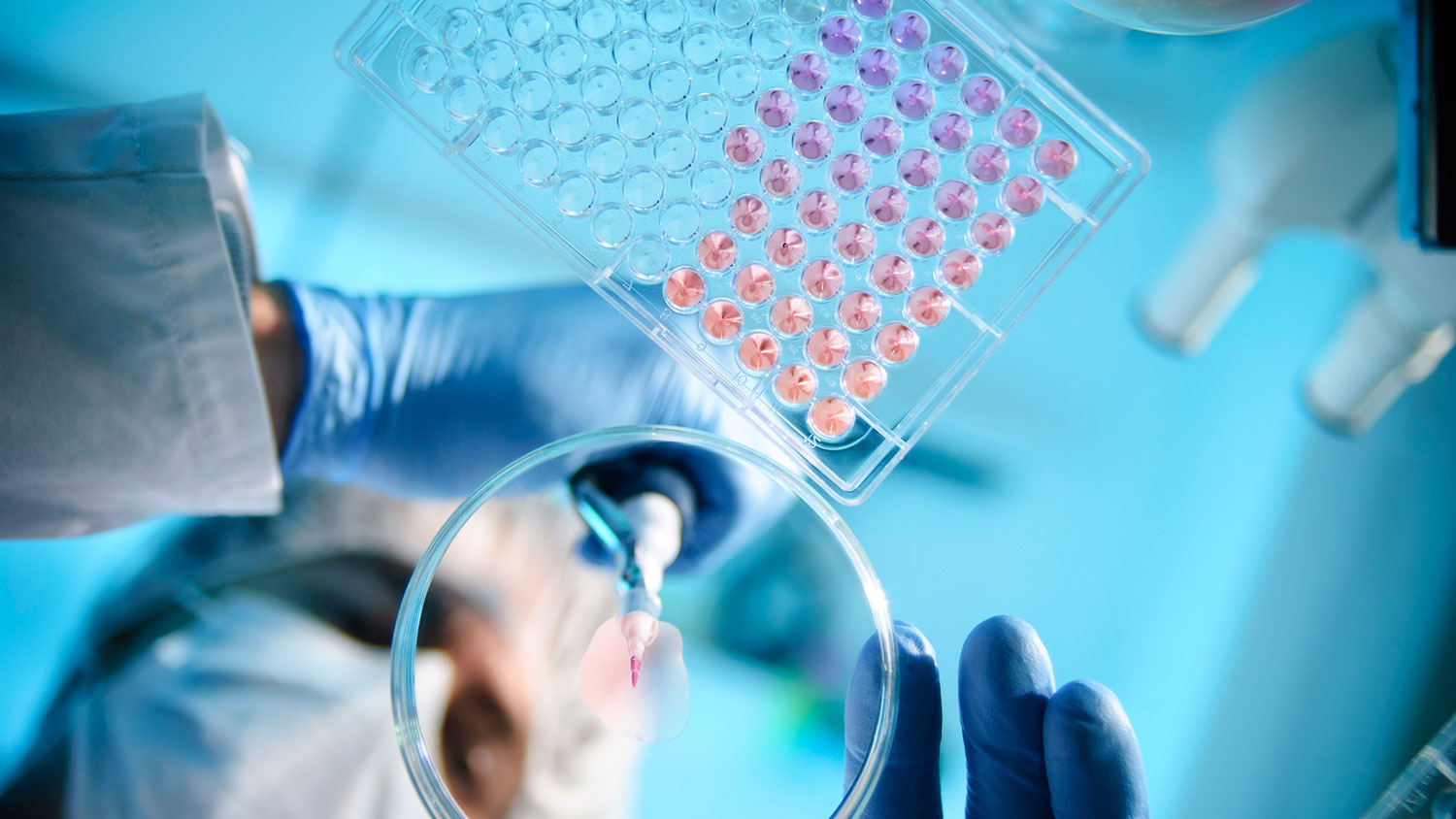Bringing academia and industry closer to accelerate biotech sector growth
Fri, 11/04/2022 - 12:00
For Singapore to achieve its aspirations of becoming a biotech hub, it needs talent with both deep research capabilities, and the operational skills and understanding needed to run businesses. SGInnovate spoke with two experts who discussed how stronger partnerships between the two sectors could help close these manpower gaps.
The growth of Singapore’s biotech industry is outpacing the supply of talent capable of filling roles in its companies.
The issue becomes increasingly urgent with each new investment. Global firms such as WuXi Biologics and WuXi AppTec have committed up to S$4 billion to build a facility here to enhance their R&D and drug manufacturing capacity, while Singapore-based biotech company MiRXES recently put S$8 million towards setting up Southeast Asia’s first Industry 4.0 in-vitro diagnostic manufacturing facility.
It inevitably leads to the question: where can biotech companies find trained personnel ready to join them? For example, mid-level managers or C-suite executives should ideally be people with both R&D and product development experience, but finding them continues to be a challenge.
“What you're looking for in the industry is a competent scientist who has a real-world understanding of the commercial aspects,” said Dr Yen Choo, Associate Professor at Nanyang Technological University’s Lee Kong Chian School of Medicine (LKCMedicine).
“That requires an understanding of intellectual property protection regulations, regulatory affairs, manufacturing challenges, even logistical issues that help put a project into perspective.”
There are, however, solutions on the horizon. By expanding the range of expertise for researchers and fostering greater academia-industry partnerships, Singapore can sustain its own pipeline of talent.
The global competition for biotech talent
Singapore is not alone in this issue. The time needed to train industry-ready biotech professionals, combined with the surge in demand for such talent, has led to a “bottleneck” occurring in biotech hubs across the world.
Dr Yen Choo on professional qualities that biotech companies are looking forDuring projects, experimental results are going to confound your understanding of the biology. We want someone who’s insightful enough to be able to see the wood for the trees and make a decision on where to go next.
With most drug development activities based in Europe and the United States, Singapore also faces added difficulties as an emerging biotech hub.
“Talent are typically attracted to opportunity and capital. They may not see a need to relocate to a young ecosystem like Singapore when they are surrounded by more mature markets,” explained Dr Ronne Yeo, Managing Director at venture capitalist firm EVX Ventures.
Successful biotech startups are also usually led by C-suite executives who are seasoned drug developers and entrepreneurs, he added. They typically have a proven track record in areas as diverse as fundraising to GMP manufacturing, clinical testing and regulatory filing, and are familiar with aspects of day-to-day operations, such as project management. There are opportunities for Singapore is to entice them here with the right incentives.
Fostering collaboration to strengthen biotech talent pipelines
While importing talent is a key tenet of Singapore’s overall strategy, it is not a solution on its own. To ensure a continual pipeline of qualified talent to drive the industry, Singapore must tap on its strengths, focusing first on its strong research foundations. For a start, both Dr Choo and Dr Yeo noted a need to promote further integration between academia and the industry.
For instance, co11ab Novena, an incubator housed within LKCMedicine’s premises, aims to help biomedical technology startups commercialise their research. It will bring research, clinical and venture creation activities together to promote knowledge sharing and innovation.
It is an encouraging step towards bridging academia and industry, and allowing the two domains to attain a common understanding, said Dr Choo. This is vital as navigating the two fields today still requires “jumping through hoops” such as presentations to committees, lengthy paperwork, and managing perceived conflicts of interest.
In contrast, collaboration between the two spheres in overseas biotech hubs is often much easier to navigate, and industry researchers are better able to collaborate with academics freely and rapidly. Singapore is already treading the path towards that goal, but it will take some years before people are comfortable with the arrangement, he added.
Put together, startups and ecosystem partners such as Institutes of Higher Learning (IHLs) and other research organisations can create a multiplier effect on innovation and enterprise.
“IHLs should continue doing what they do best, feeding the ecosystem with technology, as it fuels everything downstream,” said Dr Yeo. “Through collaboration, we may even see the next Genentech coming out of Singapore.”
Ensuring academics gain a commercial perspective
Universities play a part in preparing academics for industry roles too, by equipping them with business fundamentals that will enable them to understand industry needs. Mastering the ability to manage timelines for pharma-level projects and raise funds will also give local scientists an edge when it comes to marketing products.
For now, Singapore should continue to complement its local talent-building pipelines with professionals from established biotech hubs with the right experience, explained Dr Choo.
Dr Ronne Yeo, on what Singapore needs to build a healthy, self-sustaining biotech ecosystemWhat’s difficult is finding Singaporeans who believe they can make things happen and take the first steps.
During projects, experimental results are going to confound your understanding of the biology,” he said. “We want someone who's insightful enough to be able to see the wood for the trees and make a decision on where to go next.
Singaporeans could also gain experience overseas. “That is one way to import much-needed skill sets,” said Dr Yeo, adding that many companies in the US view Singaporeans as well-trained and adaptable, making them desirable hires.
This complements the internal talent development goal. The way to groom them is to help them gain industry experience and commercial expertise in biotech companies, he noted.
Providing a platform to gain experience with the Helix Immersion Programme
Yet another way Singapore is looking to bridge academics and researchers with the commercial biotech ecosystem is SGInnovate’s Helix Immersion Programme (HIP). The one-year, on-the-job training programme equips biotech academics and researchers with more hands-on, operational skills like CMC and regulatory work through attachments with industry partners.
These competencies provide the foundation for researchers to eventually helm startups. “Equipping our workforce with these skill sets will help Singapore’s biotech ecosystem mature. With a sufficiently diverse talent pool, biotech companies can then start to establish more functions here in Singapore,” said Dr Yeo.
“What’s difficult is finding Singaporeans who believe they can make things happen and take the first steps,” he added. “The HIP is important to help Singapore solve its talent bottlenecks, which, in my opinion, is the last piece of the puzzle for a healthy and self-sustaining biotech ecosystem.”
Expand your career perspectives in biotech. Find out more about the Helix Immersion Programme here.
 |
Dr Ronne Yeo is the Managing Director of EVX Ventures and formerly the Founding Vice President of EVX’s flagship biotech company Carmine Therapeutics, which focuses on developing non-viral gene therapy. He is currently the co-founder and Chief Scientific Officer of EVX’s latest portfolio company, Carcell Biopharma. |
| Dr Yen Choo is Associate Professor of Stem Cell Science and Regenerative Medicine at Lee Kong Chian School of Medicine (LKC Medicine), a joint medical school of Nanyang Technological University (NTU) and Imperial College London.He was the founder of LKC Medicine’s Office of Innovation and Entrepreneurship, and is currently Executive Director of co11ab Novena, a BioMedtech incubator jointly established by NTU, National Healthcare Group (NHG) and A*STAR. |  |
Trending Posts
- Keeping satellites safe: How CYSAT Asia 2026 is tackling space cybersecurity
- The future of fusion energy: What will it take to bring the power of the stars to earth?
- How an aerospace engineer charted a path to quantum technology
- Scaling nanomaterials is challenging — Meet the startup with a hybrid solution
- Surveying Singapore's early-stage emerging tech startup landscape






